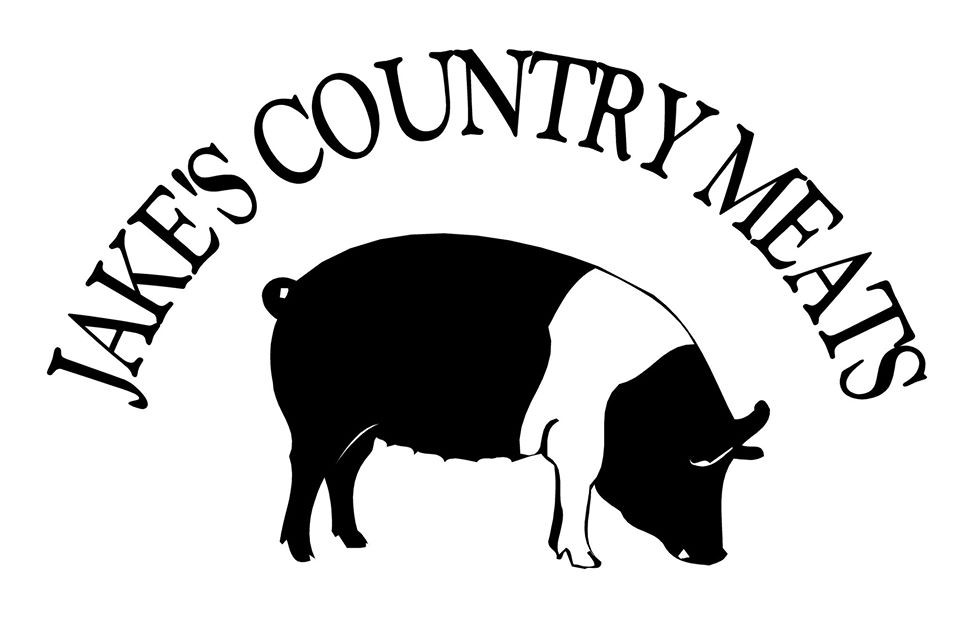A Different Approach
posted on
September 8, 2023
Cassopolis-based Jake’s Country Meats takes different approach in raising livestock
Marshall V. King Tribune Columnist
Original Print Date - Sept 1st, 2017, and can be found here.
CASSOPOLIS -- Nate Robinson wants happy pigs.
He feeds them granola bar remnants as a little treat to go along with the nuts and grass they eat as they roam the pasture and woods. He learned years ago that Lifesavers don’t work so well after several pigs got stuck in the sweet goo that had melted and rehardened.
Robinson has plenty of stories as a sixth-generation farmer, as someone still learning how to raise and sell hogs better.
Robinson has learned that happy pigs mean happy customers, and happy customers mean that he and his family can make a living as farmers and operators of Jake’s Country Meats.
The majority of pigs raised in the United States live in buildings of confinement operations. You won’t hear Robinson or those who work for him denigrate those who opt to raise pigs that way. What they will tell you is the story of how they put pigs in fields for nearly twice as long. “Pasture-raised, conception to plate. That’s what we believe in,” Robinson said as he looked from a porch across the fields where the hogs run, lounge and root in the dirt.
Fifteen years ago, Robinson raised pigs for Whole Foods, thousands of hogs a year. He opted for selling antibiotic-free meat directly to consumers rather than to a chain.
It was difficult and took time. “We were kind of ahead of the curve,” he said.
Business grew to the current level of 1,700 animals a year. In addition, Jake’s sells Great Lakes whitefish, chicken and beef. The meat is defined by what it’s not. The animals don’t get antibiotics, animal byproducts or added hormones. What they get is sunshine and relative freedom.
“When someone turns into a vegetarian only because of how the animal is treated, there’s something wrong,” Robinson said.
He and his family had a heritage of raising food and eating what they grew. His family has been farming in southwestern Michigan since shortly after the Civil War. But since World War II, or mostly during his lifetime, an industrial food system streamlined how meat was raised, making it cheap. In the past decade or two, a growing number of people have started seeking out farmers willing to sell directly at farmers markets to ask questions about the animals and their lives.
Those questions get directed to “Jake.” It turns out that the company was named for one of Nate and Lou Anne’s four children and they actually call him “Jacob,” but just about any of the 10 or so family members and employees who work for Jake’s Country Meats answer to the name.
The family and those who work for them use social media and blog posts to help tell their story, but what keeps people coming back is the product. Chefs across this part of the Midwest are turning to Jake’s for pork.
“Jake’s is my primary pork supplier,” said Jason Brown, chef and owner of 110 Craft Meatery in Warsaw. His menu has a flight of different types of bacon, but they’re all nitrate-free from Jake’s. He said he loves dealing with belly that is sliced, seasoned and smoked. It has plenty of fat, which lends flavor.
Brown serves a roasted hog head when it’s special ordered and has been doing a growing number of hog roasts using Jake’s pigs. Customers notice the difference in quality between what he serves and conventional pork, said Brown.
“I get paid for quality,” Robinson said. Prices can be $12 a pound for bacon, a lot higher than mass-marketed versions, but about the same price as other specialty bacons.
Whether it’s at farmers markets in Chicago or specialty markets and restaurants across northern Indiana and southwest Michigan, the Robinsons and their employees interact with customers.
“We try to bridge the gap between the producer and the consumer,” said Jake’s sales representative Daryn Pobanz.
As the producer, Robinson and family members use about five breeds of pigs to produce the meat customers want. When a chef needs something quickly, Jake’s is big enough to respond fast and year-round.
If raising this kind of protein on the scale Jake’s is doing were easy, more would be doing it. Rotating animals between pastures, raising them without antibiotics, isn’t the norm. But the result is meat that’s better for you than confinement pork and the option of getting to know the farmer.
Besides, the animals are happy. That makes both Robinson and the people he feeds happy.
As someone wanting good food and a good story, I’m thrilled any time I see Jake’s Country Meats on the menu.
I’m hungry. Let’s eat.
Marshall V. King is a food writer based in Goshen. You can find him on Facebook (DiningALaKing) and on Twitter, Instagram and Snapchat (@hungrymarshall).
____________________________________________________________
A butterflied pork chop is served at 110 Craft Meatery in Warsaw, which relies on the pork, as well as whitefish, from Jake’s Country Meats in Cassapolis, Mich. Tribune Photo/MARSHALL V. KING

A bacon flight is on the menu at 110 Craft Meatery in Warsaw, featuring only bacons from Jake’s Country Meats based in Cassapolis, Mich. Tribune Photo/MARSHALL V. KING

Jake’s Country Meats in Cassopolis raises pigs without antibiotics or added hormones, taking about seven or eight months in the pasture. Tribune Photos/MARSHALL V. KING

Chef Jesse Shoemaker smiles near a roasted hog from Jake’s Country Meats in fall 2016. Shoemaker buys most of the pork Goshen Brewing Co. uses in its dishes from Jake’s. Tribune Photo/MARSHALL V. KING




